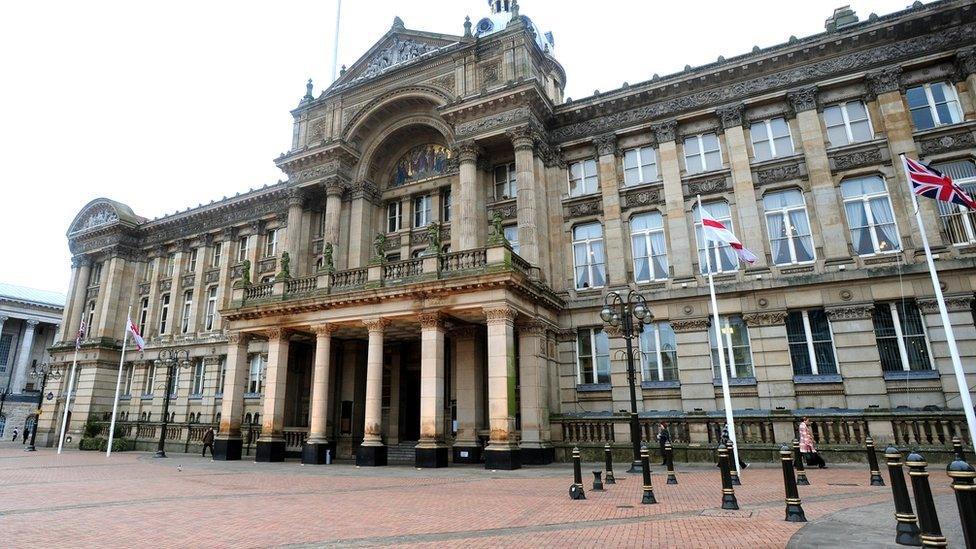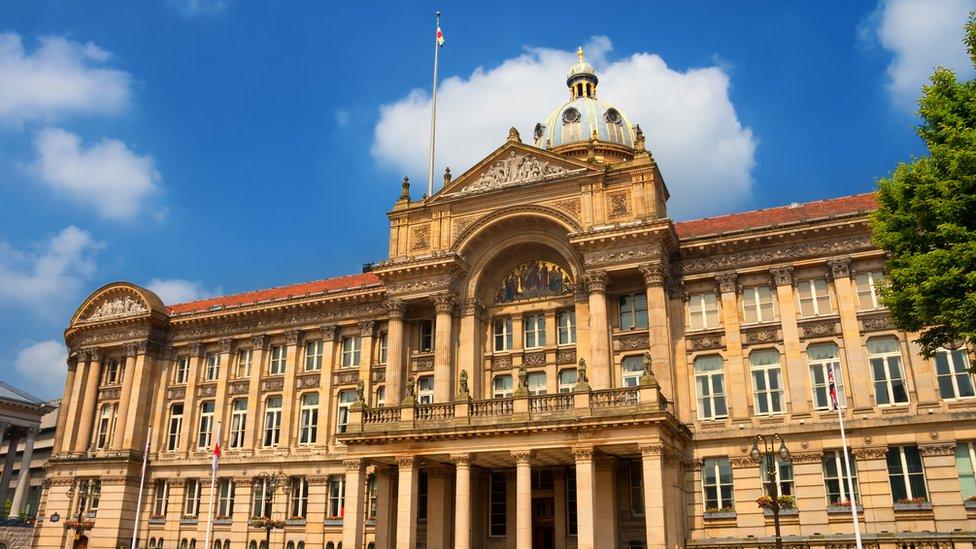Appeal court upholds Birmingham unlawful housing judgement
- Published

The council said it took its "responsibilities very seriously"
A ruling that Birmingham City Council had operated an unlawful system for providing temporary accommodation has been upheld by the Court of Appeal.
Last year, a High Court judge said the authority had left tenants in unsuitable housing while it looked for alternative accommodation.
The court heard families were left in inappropriate accommodation for considerable amounts of time.
The council said access to affordable housing in the city was "very limited".
In a landmark judgement on Wednesday, Lord Justice Lewis, who presided over the appeal case, dismissed the authority's challenge to the original judgement, the Local Democracy Reporting Service said.
In April 2021, a High Court judge ruled the council "had been operating an unlawful system for the performance of its main housing duty" under the Housing Act 1996 by leaving tenants in unsuitable housing while the authority looked for alternative accommodation.
The judgement was brought forward by four claimants. At the time, all claimants were living in temporary accommodation which the council acknowledged was unsuitable, but had nonetheless remained for more than a year.
One claimant was a single parent who lived with his seven children. Two were identified as severely disabled.
The family was placed in three-bedroom temporary accommodation in March 2019, but four of the children shared one bedroom.
At the time, the High Court heard the claimant was forced to postpone necessary surgery for his disabled daughter because she would be unable to safely recover in the temporary accommodation.
A review officer wrote to him stating his accommodation was unsuitable on the basis of overcrowding, and was told that he would be placed on the "planned move list" but was not given further details.
Lord Justice Lewis concluded: "The conclusion that Birmingham was in breach of its section 193(2) duty in three of the cases in this appeal was the result of the fact that Birmingham had already accepted that the respondents' current accommodation was unsuitable."
The council said it took its "responsibilities very seriously", was "considering the judgement carefully" and was "very sorry for the distress caused to the tenants in this case".
A spokesperson stated the private rented sector was "very expensive - in Birmingham only 15% of private sector housing rents fall within the local housing allowance rate so are out of reach for many of our households".
They added the council's objective was to be "very prevention focused" to avoid homelessness in the first place, but given the national housing crisis and pressures "we are faced with", it was "experiencing exceptionally high levels of demand".
The spokesperson said where bed and breakfasts and hotels "are used, we aim to provide further support particularly with a view to enabling prompt move on and bespoke support" for families.
"In the meantime we will be taking steps to immediately prioritise those who have been found to be occupying unsuitable accommodation."

Follow BBC West Midlands on Facebook, external, Twitter, external and Instagram, external. Send your story ideas to: newsonline.westmidlands@bbc.co.uk, external
Related topics
- Published26 April 2021
